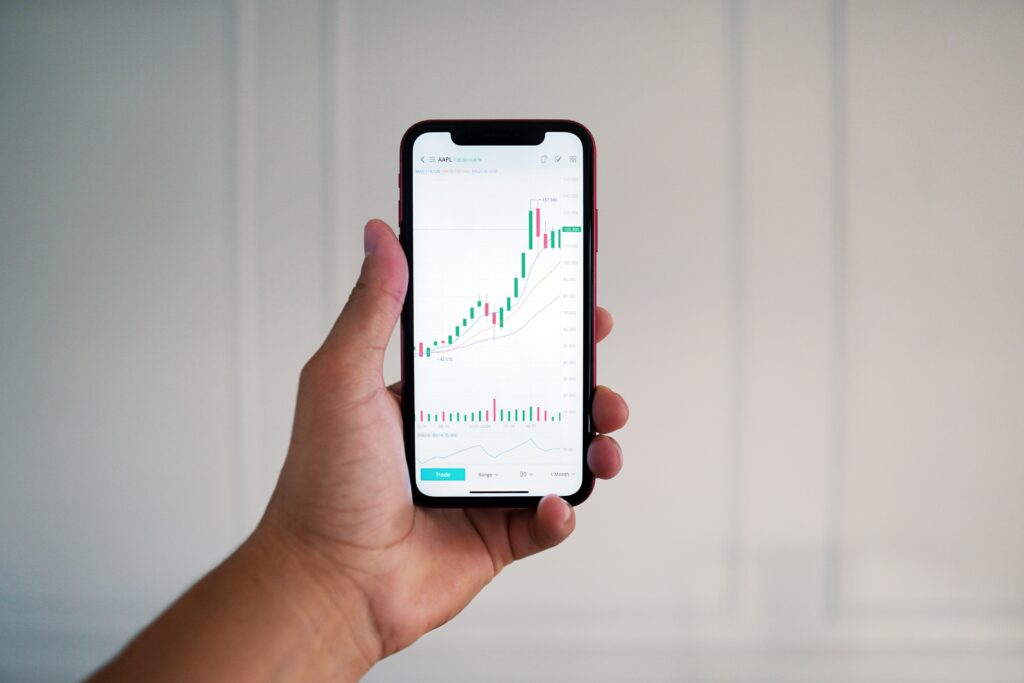Should I Invest In NFTs?

From retail investors to the big players on Wall Street, NFT investment is white hot right now. But is it right for you? As with all exciting new investment opportunities, it depends on your risk tolerance and how much research you’re willing to do. Hopefully we can make things a little clearer for any budding NFT investors out there.
Let’s start at the start. NFTs (non-fungible tokens) are simply unique pieces of digital work that can be bought and sold. People use NFTs to sell their artwork, music, and even films. When thinking of traditional investments, people’s minds tend to wander towards stocks, real estate, and expensive art. After all, they’re physical pieces and typically appreciate in value as time goes by.
These types of investments are still alive and well, but the digital landscape is becoming a more popular medium of investing. Technological advancement and the rise of cryptocurrency have made NFTs highly appealing. That said, you may be wondering, “Should I invest in NFTs?” Let’s weigh up the risks and benefits!
How to buy NFT investments
Buying NFTs isn’t as simple a process as some may think. This is especially true if you’re not au fait with the cryptocurrency game. You can’t simply hand over a bill and receive the change for your brand new NFT. You must first dive into the world of digital finance.
You’ll use your real money when you’re buying Ethereum, the type of blockchain most NFTs are built on. Once you have currency in your crypto wallet, you can connect to an NFT marketplace like OpenSea or Nifty Gateway. From there, it’s much the same as online shopping.

Why do people buy NFTs?
One of the main reasons people buy NFTs is because they’re similar to any other type of investment. If you get in on the ground floor when an NFT is at its lowest, you can reap the rewards when it appreciates in value. For many people, it’s all about making the most return on their investment on their chosen NFTs. However, that’s not the only reason people dive into the ever-growing NFT pool.
The types of work sold as NFTs are what really spark some buyers’ interest. For example, an artist can sell their digital works of art as an NFT. Fans of the artist’s work can purchase the original copy – and, as anyone who’s seen any art heist movie ever will know, owning an original has always been a huge deal in the art world. This is especially true if that digital artwork is on its way to becoming famous in its own right – the value should just keep growing.
Another reason people want to buy NFTs is simply that they make them happy! In the case of music, many artists have turned to NFTs as a supplemental way to sell their latest albums. Fans of the artist will buy their new album as an NFT because they love the band and their music, and want to support them. Artists ranging from pop superstars (Shawn Mendes) to rock and rollers (Kings of Leon) have capitalised on this trend over the last few years. For many people, there is both logic and emotion attached to buying NFTs.
What are the pros and cons of investing in NFTs?
When looking at the pros and cons of investing in NFTs, you first have to look at how investments tend to work. Even the soundest of investments carries some risk that you may not get a return.
On the pro side, NFTs are highly accessible pieces of digital work. Anyone can load up a digital wallet and get into the NFT marketplace. This isn’t the same for many other types of investments, as many people do not have the capital to invest in, say, real estate or original physical art pieces.
After buying an NFT, they are easily sent from person to person. When you want to offload your digital piece, it’s as easy as it was to buy it. Blockchain technology also has a level of security many other types of investments don’t have, which is very appealing to those who want a little more than just a handshake and a signature on a piece of paper.
Finally, the world of cryptocurrency is expanding. Getting into NFTs now can help you learn more about blockchain technology – and this extra knowledge could serve you well in the crypto-driven future.

There are also cons to investing in NFTs – ones that you don’t typically see in other types of investments. Fads and hype can cause the values of those tokens to become both volatile and inflated, so it’s important to choose your investments very carefully.
You also can’t just take your hard-earned cash and buy NFTs. You need to have the proper digital currency to buy in the marketplace. This makes it a little more difficult to get acquainted with the NFT landscape; however, if finance moves more and more online (and tall evidence seems to be pointing this way) then there’s no better time than now than to start educating yourself around NFTs and cryptocurrency.
How much do NFTs sell for?
The price of NFTs can range drastically. For example, when the first NFT sold in 2018, it went for roughly $1,800. Now, that same NFT is going for over $5 million. One NFT created by digital artist Mike “Beeple” Winkelmann sold for almost $70 million. The piece of work, known as EVERYDAYS: THE FIRST 5000 DAYS, is one of the most expensive pieces of art ever sold.
Essentially, you can’t really boil NFT value down to a set number because the tokens range so wildly. Trading NFTs is also out of the question because they are all so unique. It would be like trading a Pokemon card for a baseball card – you simply can’t do it and keep the value equal. (Although if anyone’s got a 1997 Pikachu, hit us uuuup!)
Getting into the NFT investment world has its upsides and downsides. If you think investing in NFTs is right for you and your financial portfolio, be sure to do your research and weigh up the pros and cons before you jump into this exciting and ever-changing online world.
Featured image by Mathieu Stern on Unsplash
Tags: Beeple, crypto, Ethereum, Kings of Leon, NFT, Nifty Gateway, OpenSea, Shawn Medes
